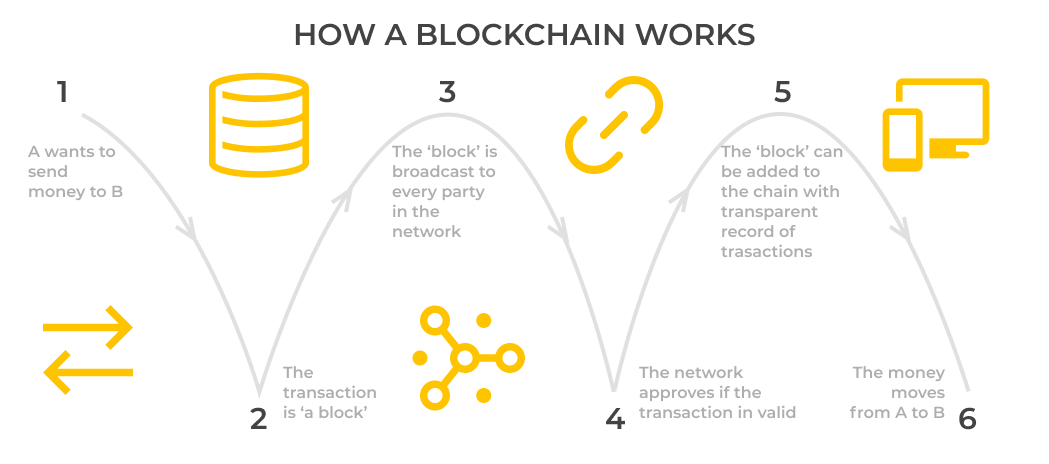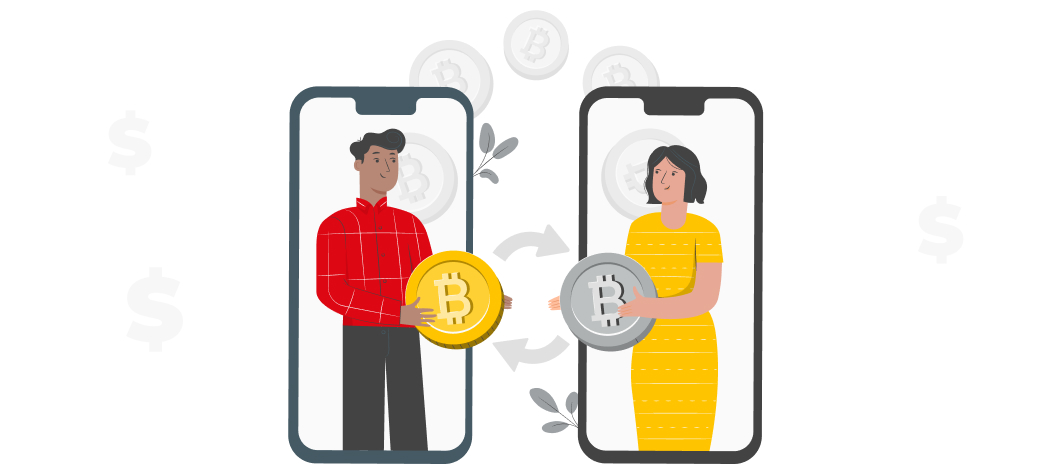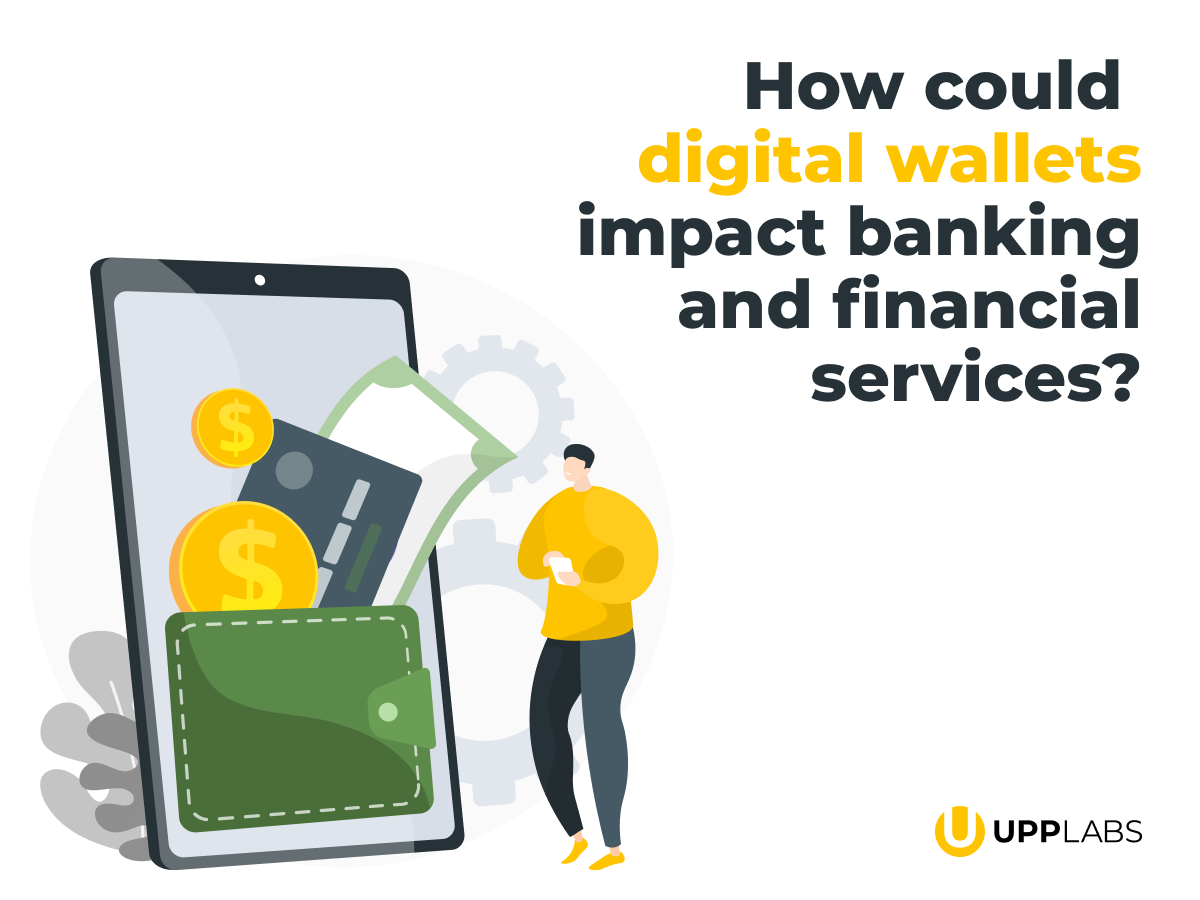In the financial services industry, blockchain helps to completely revise the existing structure of banks, speed up transactions, and modernize stock exchanges with proper security. In this article, you can find out more about the influence of blockchain on other financial services and their prospects.
The lack of transparent and clear rules of the financial system makes the company vulnerable, provoking systematic errors and misinterpretation of information. Blockchain technology helps to solve most of these problems and significantly reduce financial risks.
What is blockchain?
Blockchain is a digital database that allows storing records of certain operations simultaneously on many computers. This technology contains digital information – data on transactions, contracts, contact databases – held in the form of consecutive interconnected blocks.
Any member of this network can check the information in the database. Still, no one can change or delete it as the system is updated automatically in response to any changes. It sends the relevant data to everyone who has access to the information. It avoids both deliberate manipulations and calculation errors.
Because information is stored on many computers at once, blockchain financial technology has several advantages:
- The insurance of complete transparency. Any network user has a copy of the database on their computer and can view the information at any time.
- You can’t delete the information. To completely get rid of certain data, you need to delete them from all computers at once.
- You can’t change the information. The technology is designed so that it doesn’t allow editing data after the operation.
- Blockchain saves money. Thanks to financial technology, there is no need for all kinds of intermediaries accompanying and registering transactions.
Bitcoins and Finances
Before the invention of bitcoins, anything digital could be copied. But cryptocurrencies, especially bitcoins, have created something completely new – digital code that cannot be duplicated. That’s why it’s so valuable as a currency because it is impossible to counterfeit bitcoin.
Since then, the financial world has seen many innovations related to blockchain technology. For example, after obtaining permission from the SEC (the US’s main securities regulator), the American online retail giant Overstock announced the sale of the company’s public shares. In addition, there is a new form of investment in ICO technology startups (initial coin offering). And there is a new decentralized platform for mobile applications – AppCoins.

Like many promising innovations, blockchain attracts investors’ interest because the companies using blockchain show great results. For example, PayPal grew 25% in a year by enabling customers to utilize advanced blockchain-based financial solutions.
Benefits of blockchain in financial services
Blockchain allows you to eliminate intermediaries in financial transactions, reduce costs and optimize many processes. For example, with its help, banks can speed up the reconciliation of documents during factoring. It also allows banks to gain access to a common database of fraudsters and prevent money laundering. According to a study by Juniper Research, the introduction of blockchain in international payments will help banks save up to $10 billion by 2030.
We collected some of the main examples of blockchain advantages for financial services.
Banking
The use of blockchain makes it possible to eliminate intermediaries when performing banking operations and automate many processes. The efficiency of the banking system is also increased by reducing costs. Banks can get additional sources of income thanks to the emergence of new business models and products based on the blockchain.
The main scope of blockchain in the banking sector:
- Providing fast and cheap money transfers. It is especially true for cross-border transfers and micropayments, where bank fees can be comparable to the transfer amount. While in banks, such transactions take a long time (up to 3-5 business days) and are expensive (from 1% of the amount).
On a global scale, this is a considerable expense. In cryptocurrency networks, transfers take several minutes and are significantly cheaper. - The ability to automate processes and quickly process transactions. It allows you to reduce costs and reduce staff.
Blockchain makes it possible to get rid of complex workflow because you can trace any operation. The technology guarantees the security of the data while excluding the human factor. There are already projects on the blockchain that issue loans, identificate customers, and implement corporate financing. - Ensuring the immutability of transactions. That is, the inability to make changes retroactively and falsify reporting. The banking system is not transparent. Blockchain will make all operations transparent and increase trust between all participants.
Decentralized Finance (DeFi)
Decentralized finance (DeFi) is financial instruments and services implemented based on distributed registries on the blockchain. It allows to replace the services of traditional banks and financial companies and thereby ensure greater availability of financial services.
Key Benefits of DeFi are:
- lower fees compared to those charged by traditional market participants for their services;
- high level of transparency;
- faster delivery of financial services.
The infrastructure for DeFi and its regulation is still under development and discussion. It hinders the development of technology and related projects. However, essential shifts in DeFi regulation have already been implemented in many countries, such as Germany and Japan.
Banks are showing particular interest in DeFi. And blockchain allows them to improve many processes – to make them safer, more reliable, and more transparent. Money transfers, transactions, letters of credit, compliance, routine work – all these operations can now be carried out using this technology. In addition, blockchain is actively used by exchanges, brokers, asset managers, and many other financial institutions.
Digital Assets and NTFs
The abbreviation NFT means “non-fungible token.” A token is an entry within a blockchain. Some tokens can be fungible (for example, one bitcoin can be replaced by another). The tokens are equal in properties and value, while others are not.
The non-fungible tokens were created to bring unique items to the blockchain. NFT is a unique asset and cannot be replaced by another token.
Therefore, people can use this technology to secure ownership of individual items. NFTs are now taking over digital art and collectibles everywhere. Some tokenize real estate.
Each NFT can only have one official owner and is protected by the Ethereum blockchain. No one can change the ownership record or copy/paste a new NFT into an existing one. According to experts, theoretically, the scope of NFT is huge and can include everything unique, and requires proof of ownership.
Trade finance
Trading financing requires many international rules and regulations that regulate the activities of importers and exporters. Manual processing of information is still needed at each stage to track the location of goods and their further movement. It includes filling out documents and entering data into registers.
Blockchain technology provides all international trade participants with a higher level of transaction transparency. It’s possible thanks to a public ledger that accurately tracks the location of goods moving around the world. By simplifying the complex world of trade finance, blockchain technology can help save time and money for importers and others sides of the trade.

Insurers also use an existing KYC blockchain solution where all documents are recorded on a distributed ledger and encrypted with cryptography. Documents can only be accessed using encryption keys (public and one-time private), available to the client. Using these keys, the client will grant access to documents for a limited time, sufficient for their verification.
The low cost of smart contracts and transactions will make products more competitive. It penetrates the new markets of developing countries that are not covered by insurance services.
Facilitate compliance
Financial institutions operate in an environment where the regulatory framework constantly changes and becomes more complex. It makes the banking system more transparent, reducing risks and preventing corruption. For example, US banks are now required to report to the National Crime Agency (NCA) for any transaction over $ 0,000. At the same time, blockchain technology will provide regulators with complete and continuous access to relevant information. It prevents real-time money laundering and other transactions and financial crimes.
Regarding compliance, there are two main areas where the use of blockchain will have the most significant effect:
- data storage and analysis: symbols recognition (texts, captions, images), voice, speech face recognition;
- control of transactions, compliance with the regulatory framework, decision-making on possible risks.
Automating processes, reducing the impact of the human factor, and establishing decision-making rules will save a lot of time and money. They also reduce the possibility of errors when checking customer data or processing large data sets.
Reduced fraud
Much of the fraud connects with the enormous complexity and inefficiency of information exchange between market participants. Each party uses its database and doesn’t share information with other companies.
Fraud can be solved with an industry-wide centralized repository of information with algorithms. It allows to detection of constant offenders, repeat allegations, data inconsistencies, and other signs of fraud. Similar solutions exist in other industries, such as credit bureaus and multi-listing (MLS) real estate solutions.
Cryptocurrency
Cryptocurrency is a digital payment instrument with a decentralized mechanism for issuing and confirming transactions. It is electronic money that banks and states do not regulate. The cryptocurrency network relies not on the financial regulator but on users whose computers assure and store transaction data.
Cryptocurrencies as the primary services of application of blockchain technology have achieved impressive results and made a real “monetary revolution.” In 2021, the capitalization of bitcoin exceeded $1 trillion (of all cryptocurrencies – $3 trillion). And by 2035, according to ARK forecast, it could reach $28.5 trillion. By comparison, the value of gold available for investment in 2021 was $10 trillion.
The list of the most anticipated events in 2022 by the crypto community includes the entry of the first physical bitcoin – ETF. The US Securities and Exchange Commission has already permitted the Bitcoin Strategy ETF from ProShare.
The fund allowed institutional investors to invest in buying bitcoin. Previously, they didn’t have such an opportunity because the investment funds must operate following the licensing regime of countries. Therefore, more funds can be into cryptocurrency in the coming years because it is very profitable.
Accounting
Today, each company conducts accounting operations separately, and it takes time and human resources to reconcile the data. Blockchain can solve this problem: information about transactions, contracts, etc., will be recorded in a common register in real-time. It means verifying compliance with legal norms will be automatic. It will significantly increase the operational efficiency of organizations.
Reliable and up-to-date accounting records between counterparties make the audit process more transparent and significantly reduce time. Instead of checking huge amounts of daily transactions, auditors can pay more attention to really complex and controversial issues. Thus, the automation of processes didn’t lead to the disappearance of the auditors or accountants. But their role in the company will change.
The growing popularity of blockchain has led to services such as blockchain consulting and blockchain solution audits.
Challenges that blockchain and financial institutions face
Blockchain is a flexible and powerful technology that supports many applications and services. However, it also has several challenges for the financial industry in its current form.
- Blockchain is a new and complex technology. It means that blockchain software engineers are in high demand, making the development and maintenance of blockchain-based applications costly.
- Today, the most widely used blockchains are still not suitable for the universal deployment of applications and services. The Bitcoin and Ethereum blockchains process less than 50 transactions per second. Although a solution to this problem is on its way, limited scalability remains a significant drawback of current blockchain-based applications.
- The Proof of Work (PoW) consensus used to mine cryptocurrencies impacts the environment. It consumes a lot of electricity to approve each block of transactions, especially for the Bitcoin blockchain. The reliability of the blockchain is connected to the redundancy of the network, but all these nodes also consume electricity.
- Public-key cryptography, an integral element of the blockchain, is also ambiguous. Encryption keeps the network secure, but users who lose their private keys may lose access to all their funds. It means the users can lose millions of euros simply by losing the private keys to their blockchain accounts.
- Integration is also an issue. Blockchain applications have many benefits, but they are challenging to integrate with off-chain data and legacy systems. In fact, developers have to overcome quite a few challenges to integrate their applications with services hosted on different blockchains. Integration of DeFi protocols and services is emerging, but this is still a drawback of blockchain-based applications.
- Most countries are still formulating their response to the opportunities and threats connected to digital assets. Uncertainty in regulation and the lack of international standards make it difficult to deploy applications on the Internet. It makes users avoid using cryptocurrencies and blockchain.
Blockchain investments to buy
Blockchain use cases confirm that this technology has great potential and can benefit companies from any industry. PwC predicts that 10-15% of the world’s infrastructure will run on blockchain over the next decade. All this makes investments in blockchain projects a promising direction.
Among the advantages of investing in blockchain, experts also highlight the pro-cyclical dynamics of the industry. It means that its ups and downs follow the business cycle. Considering that the global economy is on the verge of the next stage of growth after the gradual recovery from the pandemic, we expect high results from blockchain projects.
There are several ways to invest in distributed database technology. Here are some of them:
- Buying shares of companies related to the blockchain. You can invest in enterprises that create, implement or use blockchain technologies. But to select up-and-coming companies, you need to deeply analyze their business and have a good understanding of the blockchain.
- Investments in ETFs of a blockchain company. If you don’t have the time to choose securities yourself, you can invest in many blockchain projects using exchange-traded funds – ETFs. But it is crucial to consider that you may need a qualified investor’s status to purchase shares of foreign funds.
- Investments in mutual funds on the blockchain. The most accessible and affordable way to invest in innovation is to buy mutual fund units and interest rates with the appropriate specialization. For different types of investments, you do not need the status of a qualified investor, and you can buy one share of a mutual fund for only $10-15.
We can conclude that blockchain technology will lead to significant efficiency gains, cost reductions, transparency, faster payouts, and fraud prevention. It will allow real-time data to be transferred between different parties reliably. Blockchains can also enable new insurance practices to create better products and markets. In addition, the blockchain allows for the conduct of secure decentralized operations and increased efficiency, cost optimization, and process transparency.
If you’re ready to get secure and compliant fintech company software or get a consultation of Blockchain technologies, book a call with us now. At UppLabs, we offer top-quality software development and technical expertise.



